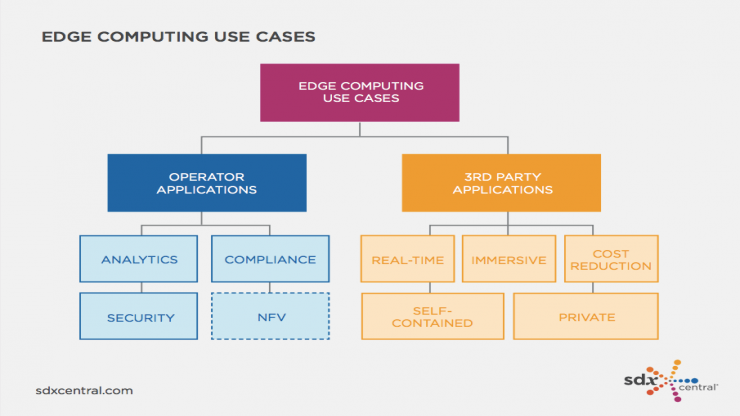
With the advent of modern technology IoT or Internet of Things has taken the world by storm. This futuristic technology has immense potential to make a paradigm shift in the operational process of the business across the domain. As per the estimates, by 2020, close to 5 million smart sensors and numerous IoT devices will be implemented in the normal process. With such massive influx of connected devices, the amount of data generated will increase multifold. As per the estimation, approximately staggering 507.5 zettabytes of data will be produced. Existing cloud infrastructure undoubtedly has improved a lot since its inception in 2005, but it will still be inadequate to store such massive amount of data and perform real-time analysis. Edge Computing is the messiah for this problem and has emerged as an integral strategic part of the IoT plan. Here are few instances where Edge can prove beneficial both from organization level as well as individual level:
Cloud Offloading:
In cloud computing world, as per the present scenario, every computation takes place in the cloud. The data is stored and analyzed in the cloud which result in long latency and it gets longer steadily as the load increases. It not only slows the process but also hampers the user experience which is the most crucial factor in the fast paced, customer-oriented world. Edge computing has computation or analytical resource to compute and analyze certain part of the data and sending it back rather than moving up all the way to cloud. This is known as cloud offloading. This has certain benefits across the sectors such as:
Retail:
Customers in present times, prefer to shop online and often change their carts depending upon their preference and other factors. Every time it needs to be updated, it will be sent to the cloud and then data will be modified which consumes a lot of time. This process can be expedited with the help of cloud offloading, the data will be processed from cloud servers to the edge nodes which can fasten the process.
Healthcare:
For the case of connected health, real-time response is utmost important. Real-time heath monitoring is gaining traction in recent times and issue of latency is the foremost concern for the concerned personnel. Through cloud offloading, the data can be analyzed real time without any delay.
Maps:
Navigation can be real first as real time data can be processed from the edge of local areas where small distance or few blocks need to be covered.
Video Analytics:
As the smartphones and cameras are being deployed and the usage is continuously on the rise, cloud computing will not be the ideal medium for this kind of applications as video analytics require real-time data transmission and processing. Cloud computing will face impediment due to the long data transmission latency and privacy concerns. For instance, in case of a missing child, the data can be processed even from mobile with the help of Edge technology which is not easily possible through existing cloud computing policy.
Smart Home:
As smart home concept is gaining traction and popularity worldwide, it is also facing some perennial issues regarding the data influx and privacy concerns. In an ideal smart homes, there will be numerous connected devices which will generate high volume of data which Wi-Fi will no longer be able to handle properly. Through Edge computing, edgeOS operating system will be involved which will process the information at the edge and keep the information locally and the internet burden free of the data influx. Edge computing is a perfect solution for the data problems.
Smart City:
What happens for the smart home, can easily be expanded to the smart cities where the basic things will remain same but the intricacies will increase. According to the estimates, A city populated by 1 million people will produce 180 PB data per day by 2019 contributed by public safety, health, utility, and transports, etc. In this case, centralized approach would not be a feasible one due to high workload. Here edge computing can process the data on the edge and send real time information where it is needed the most such as health emergency, public safety and few other cases as well. Even for the case of geographic-based applications such as transportation and logistics, this will immensely help in data processing.
There are numerous uses cases where Edge will prove to be beneficial and help reduce the load from the cloud. Here are some noteworthy instances mentioned above which can prove the future potential of Edge computing.